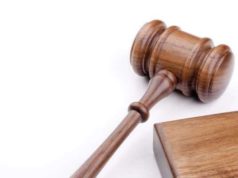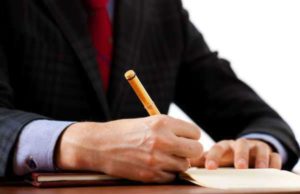
Intellectual property law is a broad definition for the defense of property such as copyrights, trademarks and
patents. Each type of intellectual property has unique and distinct enforcement and litigation mechanisms, so not all intellectual property lawyers can handle all intellectual property claims.
What are the distinctions in intellectual property law?
The defense and registration of patents are governed by the US Patent and Trademark Office. Lawyers that evaluate and prosecute violations patent claims must pass a rigorous examination compiled by the USPTO and have expertise in the academic field related to the invention. Therefore, patent lawyers are very skilled and capable at evaluating and prosecute these types of intellectual property claims. However, this lawyer is not necessary when dealing with a non-patent claim.
Trademark and copyright lawyers are intellectual property lawyers that do not necessary need to be cleared by any association other than the State Bar to practice intellectual property law. A trademark is a symbol, image or slogan that represents a commercial product. A trademark lawyer has studied intellectual property law and can keep up to date with ongoing trademark claims, as these claim need to be renewed every five years. The trademarking process typically takes ten months, from filing to trademark certification. Some five or six years after the trademark certification, the trademark lawyer will need to maintain the trademark by filing a number of affidavits of continued use and incontestability. Make sure that the lawyer is aware of this and will help you maintain your trademark.
Copyright lawyers have also studied intellectual property law and deal with the exclusive rights of use granted to the creator of an original work. Provided the work has not entered public domain, an intellectual property lawyer can help the creator prosecute claims of copyright infringement. On the other side of prosecution, an intellectual property lawyer can help defend against claims of infringement with defenses such as “fair use.”
Where to look for an attorney
You may use this website to find an attorney. To do so, use the search box on top of all pages. You may also compare attorneys and ask free questions by clicking Find Attorneys on top of the page.
State Bar Associations will all maintain directories of member lawyers, with specialized sections for trademark lawyers and other intellectual property professionals that will be able to help you classify and file for your trademark.
Do I need a specialist?
You need a specialized intellectual property lawyer. As the laws governing intellectual property are very complicated, most general practice lawyers will not be able to provide premium service, in spite of claims they may have to the contrary. There are international classifications and continuing affidavits that need to be filed for trademarks and only patent lawyers can prosecute patent claims. As intellectual property law is also very tedious, a specialist is aware of this and will devote adequate time and resources to doing a thorough job. Proper trademark lawyers will maintain a process to determine compliance, often through a series of searches through existing trademarks before actually filing the trademark application.
Evaluating Experience & Education
Generally speaking, intellectual property lawyers that have specifically studied intellectual property law will be the best lawyers as they should be aware of the nuances of the law and will be able take the appropriate steps to ensure you are in compliance of the relevant laws. If the intellectual property lawyer is unaware of any of these important steps in the process, then you will need to consider finding another attorney. Remember that despite being in the same branch of law, patents, trademarks and copyright require different expertise and sets of laws. Failure to follow the process, as set by the USPTO and other regulatory bodies, will endanger your right to protect and use your intellectual property.
Personality & Values
Communication is also important to maintaining trust and navigating the complicated patent, trademark or copywriting process. If an attorney makes it difficult to talk or meet with him, you may want to reconsider your decision as a lack of communication may jeopardize your claim. It is also important to get all agreements in writing including disclosure of fees and agreements.
Even with the guidelines on ethics issued by the patent office and bar associations, you must be vigilant when dealing with some lawyers that lack a solid record of integrity and ensure that your dealings with them are fair and transparent. Be aware of unreasonable fees, illegal activity or coercion on the part of the patent attorney. If necessary, you may report unethical behavior to the USPTO, which will prevent a similar experience for another trademark or patent seeker needing legal advice.
Preparing for an appointment
Before meeting with a lawyer to perform any aspect of intellectual property law, one should gather relevant information about their invention or idea, such as schematics, partners and intellectual property so that the lawyer can assess which services you need. Word marks must be presented in exact spelling and logo marks must be presented in full, a copy of which can be reproduced digitally. For those that simply need a document completed or filed, there may be a flat fee available, which eschews hourly or retainer fees with the understanding that you will not require the dedicated services of the lawyer.
With proper knowledge, the lawyer can help you rewrite the proposal to make it stronger and protect against potential flaws or pitfalls that could stall or terminate the approval process. The trademark lawyer should be able to identify how the trademark examiner will think and react to the trademark claim.
Decide in advance how you would prefer to pay the lawyer for his or her services. If necessary, you will need to formulate a retainer agreement, in accordance with state regulations. Alternatively, you can opt for hourly rates and flat fees for using the lawyer’s legal services. Remember that claims such as trademarks will have to be renewed every five years and retaining the lawyer’s services will be useful.
Rates, Fees & Retainers
Chances are you will not need to place the lawyer on immediate retainer unless your claim is being disputed. For those that cannot afford to keep a lawyer on dedicated retainer, the best and most popular option is to pay the patent lawyer a flat fee for performing legal services, such as helping you file the trademark paperwork.
While consulting an intellectual property lawyer, hourly rates may be accrued from using the lawyer or support staff such as paralegals. There may be other fees for creating and copying documents as well as filing them with the proper authorities. It is especially important to be aware of those fees.
Interviewing your intellectual property lawyer
The following questions are important when interviewing your attorney:
What fees do I pay for retaining your services?
– Am I paying for the use of a paralegal or other service in your office?
– Are there fees for the reproduction of documents?
– Can I have that in writing?
Can I contact you directly if there is a problem?
Will you allow me to examine your credentials?
What aspects of intellectual property law do you normally specialize in?
What happens if my claim is disputed by another party?
If you cannot handle my case, can you refer me to a lawyer that can?










